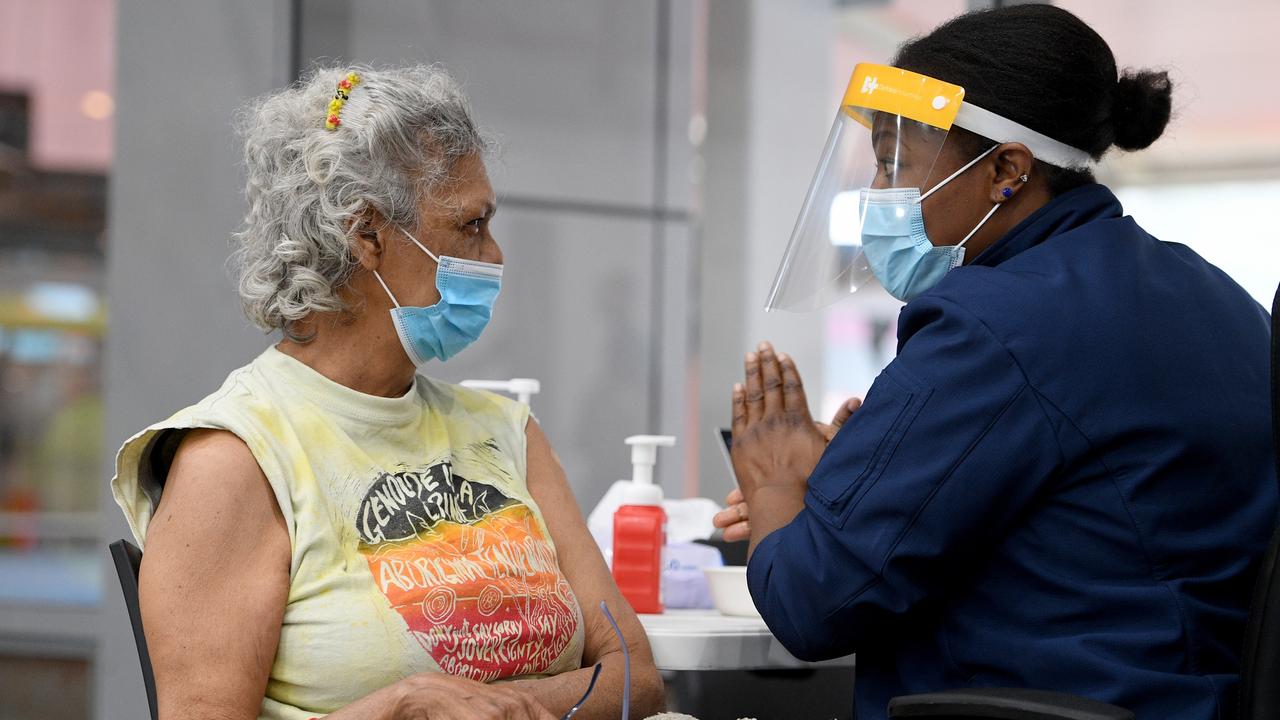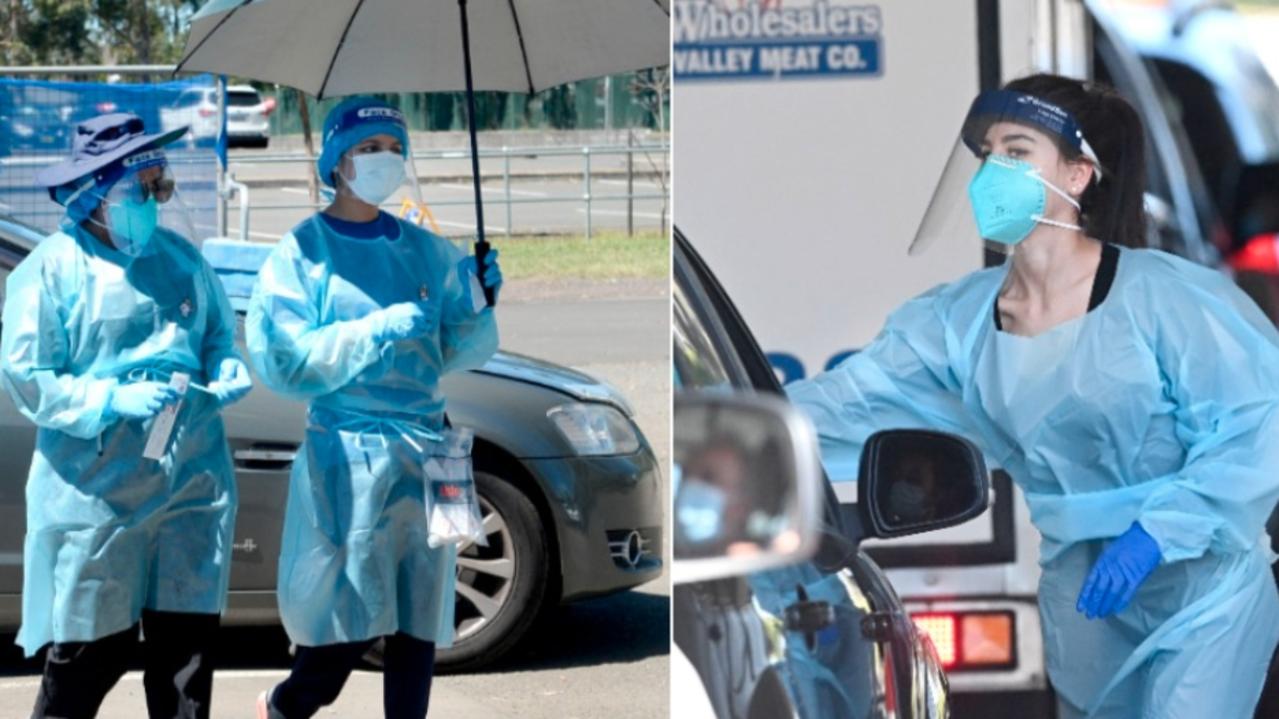Grandparents left to pick up the pieces of young lives shattered by ice addiction
A GROWING number of grandparents are now the primary carers for their grandchildren – because their ice-addict children cannot look after them. JULIE CROSS investigates.
Nth Beaches
Don't miss out on the headlines from Nth Beaches. Followed categories will be added to My News.
THE birth of Margaret’s first grandson was meant to be a joyful occasion. But instead it was the catalyst for a series of devastating revelations about her daughter Jo, which would change all their lives forever.
Doctors had discovered ice in Jo’s bloodstream. She had stopped at her dealer’s for a hit en route to the hospital.
Margaret had her suspicions of a drug problem but this blood result was the shattering proof.
This horrific story is not as rare as one would think.
Margaret, 67, and Douglas, 76, are among a growing number of grandparents on the northern beaches who are now the primary carers for their grandchildren – because their ice-addict children cannot look after them.
Their crucial role in keeping families together emerges after the death on Tuesday of Brayden Rhodes, 7, and his grandmother Linda Addams – allegedly at the hands of Mrs Addams’ ice addict son Lance Rhodes.
“Our whole lives have changed,” said Margaret, after her daughter begged her to take all three grandchildren, who are under the age of five, rather than allow them to go into care.
“They are adorable, but I have never, ever been so tired in my life.”
When she last went to Centrelink to collect child benefit she was told they had seen “many grandparents in the same situation as us in the last month”.

Sue Johansson from Relationships Australia has become increasingly aware of a growing number of grandparents on the northern beaches who were caring for their grandchildren.
She said an increase in parents suffering mental health, drug or alcohol addictions, was causing the trend.
In response she set up a support group in Warringah, with the help of Connecting Carers NSW.
“These people are amazing,” said Ms Johansson, of the grandparents she has met.
“As well as looking after their grandchildren, many are also trying to help their own children get back on track.
“Some of these grandparents have their own health issues due to their age, others are younger, but have frail elderly parents they are also supporting.
“We know there are more grandparents out there who feel isolated and need our help.”
Deborah, 56, is one of them. She is another northern beaches grandparent with a daughter on ice.
Unofficially she has been looking after her two grandchildren for several months.
She doesn’t get any financial assistance from the Government.

However much she wishes she could give the grandchildren back, she said she would only do so once her daughter was totally clean, but it was almost impossible to know.
“She has admitted she had a drug problem,” said Deborah, who is looking after a toddler and granddaughter at primary school.
“She insists she is clean, but I’m suspicious.
“She didn’t want to go to rehab. She said she would fix herself.”
Since their family imploded she has found out her daughter and her ex-partner were both on ice when they were living together with the children.
“They never allowed anyone in their apartment. They couldn’t function,” Deborah said.
“They couldn’t pick up their clothes.
“The kids had no bed to sleep on – they would crash on the couch. It was a mess.
“It was not how she was brought up.”
“We have had some really hairy experiences where she was wild, yelling and screaming, throwing stuff. It was unlike her.” - Deborah
When her daughter, 31, split with the children’s father she moved in with Deborah and grandfather Chris, 60.
Still unaware of her drug habit, Deborah said strange people would come day and night and they appeared to be “into drugs”.
“I couldn’t sleep because people were sneaking around.
“In the morning we would find ice pots. I’d had enough.
“We have had some really hairy experiences where she was wild, yelling and screaming, throwing stuff. It was unlike her.
“I had to kick her out of the house. It was heartbreaking.”
Last week police revealed the number of people on the northern beaches caught with ice had risen 80 per cent in the last two years.

Police said the increase was due to a definite social trend towards use of the drug and their increased capacity to target the supply of drugs such as ice.
Between 2007 and 2013, local arrests for possession or use of ice averaged 38 a year but in the 12 months to June this year, the number skyrocketed to 79.
Mark Buckingham from Kedesh Rehabilitation Service, more commonly known as the Phoenix Unit at Manly Hospital, said the most common drugs devastating families on the peninsula were alcohol and cannabis.
But he had also seen a significant rise in the use of methamphetamines, including ice, MDMA and speed.
“We had all these plans to go on an overseas trip. “It’s devastating.” - Margaret
He said 90 people sought help from Kedesh in Manly for methamphetamines in the last financial year.
Like many addicts Margaret’s daughter is not yet ready to seek help.
She fears her daughter will end up in jail.
And, while they would not dream of allowing the grandkids to go to foster parents outside the family, Margaret said her and her husband couldn’t help but feel cheated out of their retirement.
“We may only have 10 good years left if we are lucky,” said Margaret.
“We had all these plans to go on an overseas trip. “It’s devastating.”
Deborah’s other daughter who lives interstate has told her parents to disown her addict sister.
“As a mother that is something I can never do,” said Deborah.
She said her daughter, who was born and bred on the beaches, was a “normal, loving kid”.
“Don’t say it won’t happen to your children because it can,” she warned.
* The names of the grandparents interviewed in this story and the names of their children have been changed
WHERE TO GO FOR HELP IN DEALING WITH THE CRISIS
Parenting skills have definitely changed since the current generation of grandparents brought up their children 20 or 30 years ago, says Relationships Australia’s Sue Johansson.
Not only does the grandparents’ support group give people the chance to talk to others in the same situation, it also provides practical advice to bringing up today’s children, some of whom are suffering the physical or mental effects of their parents’ addiction.
Connecting Carers NSW, which offers support to people who are fostering, provides expert speakers for the group who can talk on a range of relevant subjects including first aid, children’s behaviour and understanding trauma.
Another course aimed at the relatives of an addict is at South Pacific Private in Curl Curl.
Steve Stokes, who runs the program at the renowned clinic, said families of addicts needed help too.
“We often meet the family before the addict because the addict is not always ready for treatment, but the family needs support,” said Mr Stokes.
“People normally come to us when they are exhausted and defeated, worn down and worn out. They are often under an enormous amount of stress.” - Steve Stokes
The affordable group course, which runs for two hours a week, over four weeks, provides families with information about addiction and an insight into how they could be enabling the addict within the family and how to change everyone’s behaviour.
“We believe in treating the whole family,” said Mr Stokes.
“People normally come to us when they are exhausted and defeated, worn down and worn out. They are often under an enormous amount of stress.”
For those who feel the addict in their family is ready for help, they can seek advice on how that can happen at South Pacific Private, where some costs can be recovered through health insurance or at The Phoenix Unit at Manly Hospital which is run by the Kedesh Rehabilitation Service.
The 10-bed residential unit is predominantly for people from the northern beaches.
Mark Buckingham, chief executive of Kedesh, said addicts had to be ready, but they could be referred by a variety of means including by a family member, their GP, police, court or themselves.
He said they offered a cognitive behavioural therapy based program and had psychologists, social workers and case workers working with addicts.
For more details of the grandparents group phone Sue on 0435 835 963. Or visit connectingcarersnsw.com.au, southpacificprivate.com.au, www.kedesh.com.au
DEPRESSION, AGGRESSION, ADDICTION
■ Ice is also known as crystal meth, crystal, meth or shabu
■ It has a clear to white crystalline appearance and is usually smoked or injected
■ Regular users may suffer depression and anxiety or show signs of agitation, mood changes, unusual sleep habits, lack of motivation and poor concentration.
■ Almost 25 per cent of ice users will suffer a bout of psychosis in a 12-month period
■ Ice use can lead to increased aggression in some people
■ Regular users may suffer weight loss, jaw clenching, teeth grinding, chest pains and skin infections because users have excessively picked or scratched themselves while under the influence of the drug



